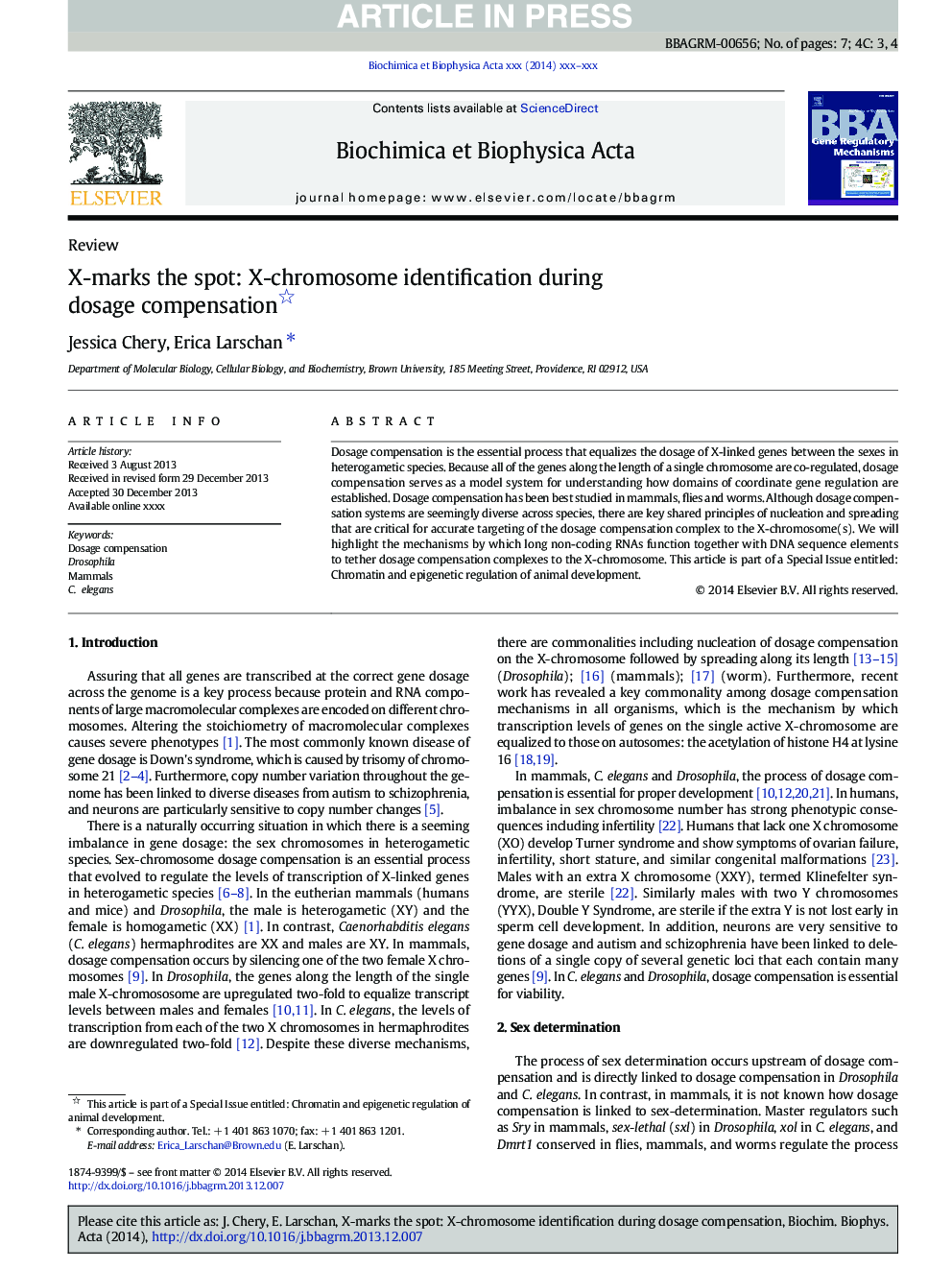| Article ID | Journal | Published Year | Pages | File Type |
|---|---|---|---|---|
| 10799056 | Biochimica et Biophysica Acta (BBA) - Gene Regulatory Mechanisms | 2014 | 7 Pages |
Abstract
Dosage compensation is the essential process that equalizes the dosage of X-linked genes between the sexes in heterogametic species. Because all of the genes along the length of a single chromosome are co-regulated, dosage compensation serves as a model system for understanding how domains of coordinate gene regulation are established. Dosage compensation has been best studied in mammals, flies and worms. Although dosage compensation systems are seemingly diverse across species, there are key shared principles of nucleation and spreading that are critical for accurate targeting of the dosage compensation complex to the X-chromosome(s). We will highlight the mechanisms by which long non-coding RNAs function together with DNA sequence elements to tether dosage compensation complexes to the X-chromosome. This article is part of a Special Issue entitled: Chromatin and epigenetic regulation of animal development.
Related Topics
Life Sciences
Biochemistry, Genetics and Molecular Biology
Biochemistry
Authors
Jessica Chery, Erica Larschan,
